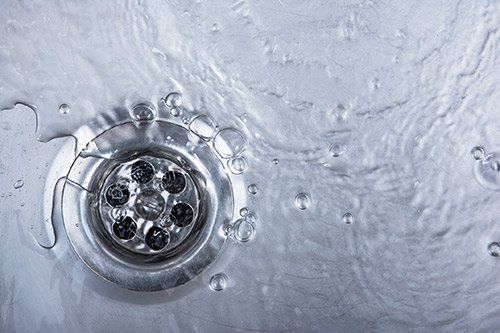Preventative Actions to Keep Your Drains From Getting Clogged
Admin • September 9, 2018

Clogged drains can be a real pain. They can interrupt your life, making it difficult to shower, use the sink, and complete everyday tasks. Clogged drains can also have other, more serious consequences. For example, a clogged drain can lead to water damage, mold growth inside your pipes, and even burst pipes.
Luckily, you can take several steps to prevent your pipes from getting clogged. Taking preventative action is the best way to avoid serious plumbing problems from clogged pipes. Read on to learn more.
1. Use a Hair Catcher
One of the biggest threats to your drainage pipes is hair. When hair gets into your drains, it can ball up inside of your drainage pipes, creating a clog. Hair also provides a structure for other debris to cling to. Lint and oil deposits stick to hair, making the clog even more severe.
Hair-based clogs can be difficult to break-up with commercial drain cleaners and can even be difficult to remove with drain snakes. Sometimes, the only way to deal with a serious hair clog is to take apart your drainage system.
In order to avoid hair clogs, you should purchase a hair catcher for your bath and shower drains. The catcher will collect the hair and prevent it from going down your drain. You are going to have to clean out the catcher a few times a week. However, the few minutes you spend each week cleaning out the hair catcher is a worthwhile investment as the catcher will help you avoid costly hair clog issues.
2. Use a Lint Mesh Trap on Your Washing Machine
Lint can be just as harmful as hair in your drains. Like hair, lint can ball up and clog up your drains, making it impossible for water to pass through.
To keep lint out of your drains, put a mesh lint trap over the washing machine discharge hose. If you discharge your washing machine into a utility sink or basement drain, then put a lint trapper over the sink or basement drain as well.
Remember to clean out the lint traps on a weekly basis. Cleaning the traps on a weekly basis will help keep the water flowing from your washing machine and will help prevent issues with your drains.
3. Keep Grease Out of Your Drain
The third biggest threat to your drains is grease and oils. Hot oils and grease can flow smoothly through your kitchen drain until they cool down. Once they cool down, they harden with the pipes. Hardened oils and grease can narrow the passages inside of your drainage pipes, making it difficult for water to pass through.
The challenge with grease and oils is you can't catch them with a simple catcher. Instead, you have to avoid letting oil and grease get into your drains in the first place.
Create a grease jar where you can discard grease and oils. When you create grease from cooking, pour that grease into a can or jar. Pouring grease and oils into a jar will help cut down on a large amount of the grease and oils that get into your drains.
You can also use a paper towel to wipe down any pots and pans that have grease on them before you wash them.
Scrape all plates and dishes and remove as much food and sauces as you can before washing them off in your sink. The grease that can clog your drain doesn't just come from oils and fats, it can come from food scraps and sauces as well.
If you end up with a clogged drain despite using preventative measures, give us a call at Express Plumbing & Drain. We can be at your house in a matter of hours to help with your clogged drains.
Discovering a slab leak in your home can be daunting. Read our blog to learn how to detect slab issues and what to do if you need slab leak repair.
Installing the right ceiling fan in your home requires careful consideration. Read our blog to learn what to consider and how an electrician can help.
To keep your home plumbing in top condition, there are some items you should never put down the drain. Read our blog to learn more about these materials.
Trees enhance property curb appeal, providing natural beauty and a relaxing atmosphere. Here is what you need to know about trees near sewer pipes.
Are you concerned that you may need a new water heater? Continue reading to learn some of the signs that your water heater is on its way out.
Plumbing issues can be some of the most disruptive and urgent problems you'll encounter. Learn how to handle emergency plumbing problems efficiently.
Water heaters are indispensable household appliances but regular maintenance to perform efficiently. Discover various maintenance measures for each type.
Trees enhance property curb appeal, providing natural beauty and a relaxing atmosphere. Here is what you need to know about trees near sewer pipes.
Choosing the right plumbing company can feel overwhelming. Explore five key considerations on your checklist when you need to hire a plumbing company.
Unfortunately, a failing or malfunctioning septic system can be a costly repair. But what causes your septic system to fail, and how do you fix it?





